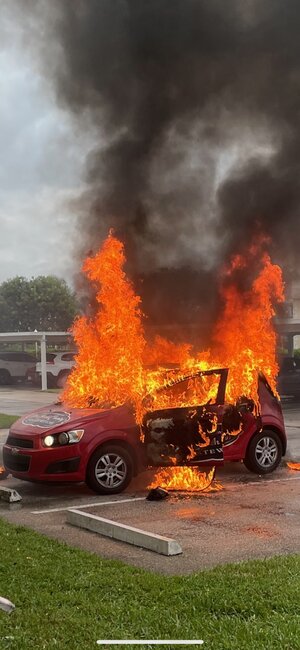I'm glad this hasn't run (completely) off the rails yet but battery chemistries make a big difference. The airline industry, being fairly risk averse, has prohibited multiple lithium battery containing toys and devices. I have a friend who's a section leader at BMW down the road, he shared with me pictures of their compromised battery containment unit, it looks like it's supposed to contain the energy of a detonating H bomb. I have an uncle who's an executive at Michelin tire, they're sitting on warehouses full of EV specific tires because they can't move them. There appears to be three reasons; 1) Range. 2) Price. 3) Safety. Range is what it is, it will work for some people's situations and it won't for others. The price, well, very little hasn't fallen victim to hyperinflation since 1/21. EV manufacturers tout lower production costs yet we see higher price tags for an EV vs. ICE vehicles so apparently the bean counters are channeling Gordon Gekko. Safety, safety is the wild card. While some EV manufacturers are offering longer charging cords to ensure people can charge their vehicle outside vs. in the garage, others are turning the battery's catastrophic failure vent into the cab instead of outside the vehicle. I know 100+ years ago, some thought it a good idea to route the vehicle's exhaust into the cab for heat, but they didn't know any better. It seems to me we should have evolved past the practice of venting anything dangerous into the cab of any vehicle (police interceptor Explorers notwithstanding). Battery technology will continue to evolve and become safer, hopefully being able to compete in the free market without subsidies or mandates but I'm not holding my breath on either of those.














